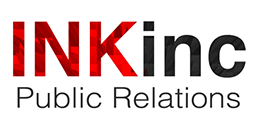Good business owners have certain expectations from their PR firms before entering into media relations partnerships. Afterall, that is why they contacted the firms in the first place. After considering their options, the businesses have decided on the final PR firms because they felt that they were the best suited for their goals and had the best potential for achieving them.
On the other side of the relationship, the firms also have certain expectations from the business client. While it is the firms’ responsibility to get coverage and meet the client’s expectations, the firms rely on the clients themselves to help them achieve the goals. In a way, it is perpetuating the old adage, “the best way to get help is to help yourself.” Below are certain areas where businesses can help their PR firms achieve their goals.
1. Communication
Although the most obvious, this aspect is one of the areas that can cause the most problems between a business and their PR firms. When outsourcing their PR, it can be easy for a business to “forget” about their PR firm as other issues come up on the agenda.
If the business has a good PR firm, their firm will be constantly trying to reach out to news media and journalists. This apparent period of inaction is the incubation period for the news stories the PR firm is trying to land their client. In time, several of the outlets will respond and will ask for the firm to follow up with more information. It is here where the communication between the firm and client is critical. If the business has gotten in the habit of taking longer to respond to the firm’s members, they run the risk of missing out on great opportunities for publicity.
Aside from missing out on opportunities, keeping up the communication is a good way to create new ones as well. The PR firm that is up to speed about what is going on with their client will not run the risk of pitching old news and will also have new content to share about their client.
2. Data
The media loves numbers. Numbers are a great way to add substance to an idea or a point a business may be trying to make. Taking a step further, numbers that focus on overall industry patterns and observations as opposed to the business specifically, are of the most use to the PR firms. While some journalists may run pieces that read more like an ad than an actual story, most of the time journalists are looking for objective statistics to report.
If a business is able to provide these numbers for their firm, the firm’s chances of landing a piece of publicity increase. Once the media has shown interest in writing about the numbers, the firms can then introduce some of their client’s execs as opinion leaders on what the implications are for the industry as a whole. In this way, everyone wins: the PR firm has better content to offer to journalists, the journalists can create pieces that are relatively clean, and the client gets the publicity and establishes itself as industry leader in the subject.
3. Testimonials
In the case where the information a business is trying to publicize is more specific to the business itself, the PR firm knows that the media will be wanting reviews and opinions from customers outside the company. Every established business thinks their way of providing a service or creating a product is the best way to do it. This is perfectly fine; it is the confidence every successful business carries. However, to stand out from all the other businesses that think their own product is better, what the businesses really need is outside customer reviews.
A journalist is more likely to want to interview a third party than a spokesperson for the company. Readers, in general, tend to be more responsive to third party reviews as well. Businesses should not expect the articles their PR firms manages to land for them to have all the language the business would have liked there to be. In such a case, an advertisement would be just as useful as readers can easily distinguish a self-aggrandizing article.
4. The 30,000-foot view
In the event the PR firm manages to get an interview for one of the business members, the firm will try to prepare whoever is interviewing to make the most of the interview. The interview will center around a main theme or topic for which the PR firm pitched the business’ expertise. A good interviewee knows the balance between answering the journalist’s questions and placing his or her business in the answers.
If the person answering the questions focuses too much on getting the business name or point of view into the answers, the journalist may consider not including the quotes in his article. This means that when the journalist asks about trends and prognostications, the right answer includes a broad answer that is then further illustrated with data that can be more specific to the business itself. If the answers focus solely on what goes on in the business, the journalist may feel the answers are biased and, in the worst-case scenarios, arrogant.
Good communication habits between the businesses and their PR firms should be enough to avoid most of the common mistakes. This does not mean that there needs to be constant communication, but rather a set schedule where the firm is kept in the know and an avenue for quick action when the time comes. Doing so will enable the firm to meet the business’ expectations.
